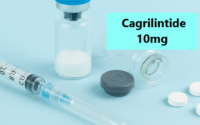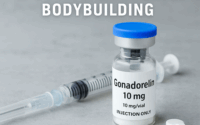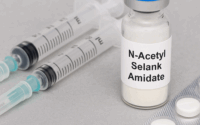What is a Peptides?
 Peptides: The Unsung Heroes of Biological Processes and Therapeutic Innovations
Peptides: The Unsung Heroes of Biological Processes and Therapeutic Innovations
In the vast and intricate tapestry of life, peptides play a pivotal role that belies their relatively simple structure. These small chains of amino acids, are instrumental in almost every biological process. Their ubiquity and diversity make peptides a subject of immense interest and extensive research. This essay delves into the nature of peptides, their biological importance, and the innovative therapies emerging.
The distinction between peptides and proteins, often delineated by size, with arbitrary cutoff points usually around 50 amino acids, belies the functional importance of peptides. These molecules are indispensable in numerous biological processes. For instance, some peptides act as hormones, delivering signals between organs and tissues to regulate physiological functions. Insulin, a peptide hormone produced by the pancreas, plays a critical role in regulating blood glucose levels. Other peptides act as neurotransmitters, molecules that transmit signals across neuronal gaps. Yet others possess antimicrobial properties, forming part of the innate immune system by disrupting the cell membranes of invading bacteria.
The therapeutic potential of peptides is vast and varied, fueled by their specificity and efficacy. Peptid can mimic or block natural biological processes, making them highly effective as drugs with typically low toxicity. One area of significant interest is peptide-based cancer therapies. Certain peptides have been found to have tumour-homing capabilities, allowing them to deliver toxic substances directly to cancer cells without harming healthy tissue. This targeted approach could dramatically reduce the side effects associated with traditional chemotherapy.
Another promising area is the treatment of metabolic disorders, including type 2 diabetes. Peptide-based drugs can mimic the action of naturally occurring hormones that regulate blood sugar levels. The field of regenerative medicine is exploring the use of peptides to promote wound healing and tissue repair.
Most importantly
The development of peptide drugs, however, is not without challenges. The stability of peptid in the biological environment, their oral bioavailability, and their ability to cross cellular membranes are significant hurdles. However, advances in peptide engineering and delivery methods are gradually overcoming these obstacles. For instance, the modification of peptide structures to make them more resistant to degradation by enzymes, and the development of nanoparticle-based delivery systems, are enhancing the therapeutic potential of peptides.
The advent of peptidomimetics, molecules designed to mimic the biological activity of peptides but with improved stability and bioavailability, is opening new doors for peptide-based therapies. These synthetic analogs can be tailored for increased potency and specificity.
In conclusion, peptid are more than just building blocks for proteins. They are versatile molecules that play crucial roles in biological processes and hold the key to groundbreaking therapeutic applications. As research continues to unravel the complexities of peptides and how they can be harnessed for health and medicine, it is clear that these small molecules will play a significant role in the future of medical science and biotechnology. The exploration of peptid represents a thriving frontier with the potential to deliver precise, targeted treatments for illnesses that are currently difficult or impossible to cure, embodying hope for myriad conditions that afflict humanity.


